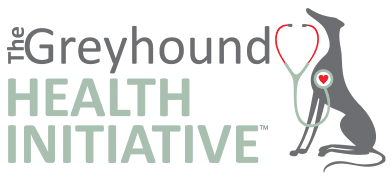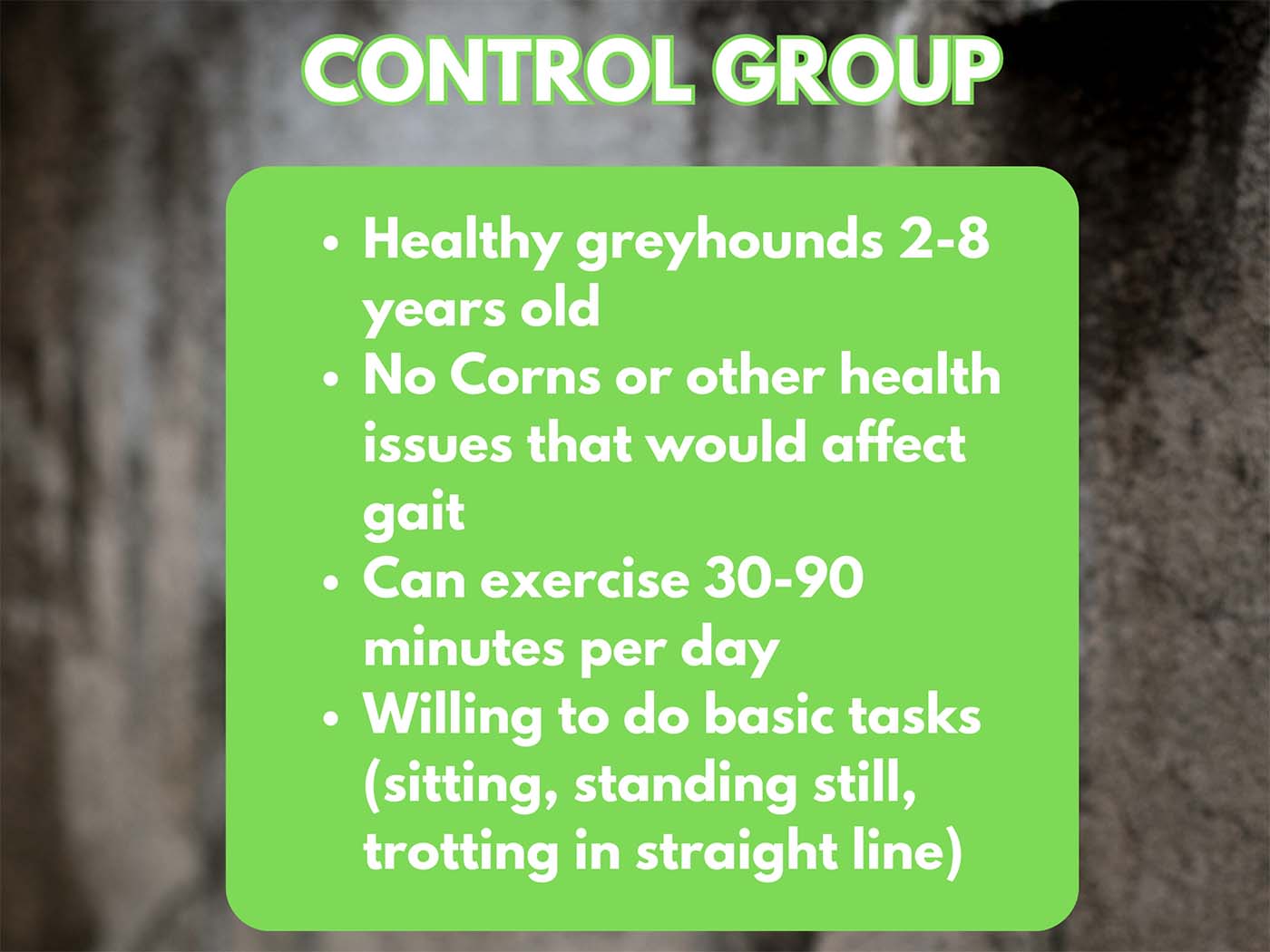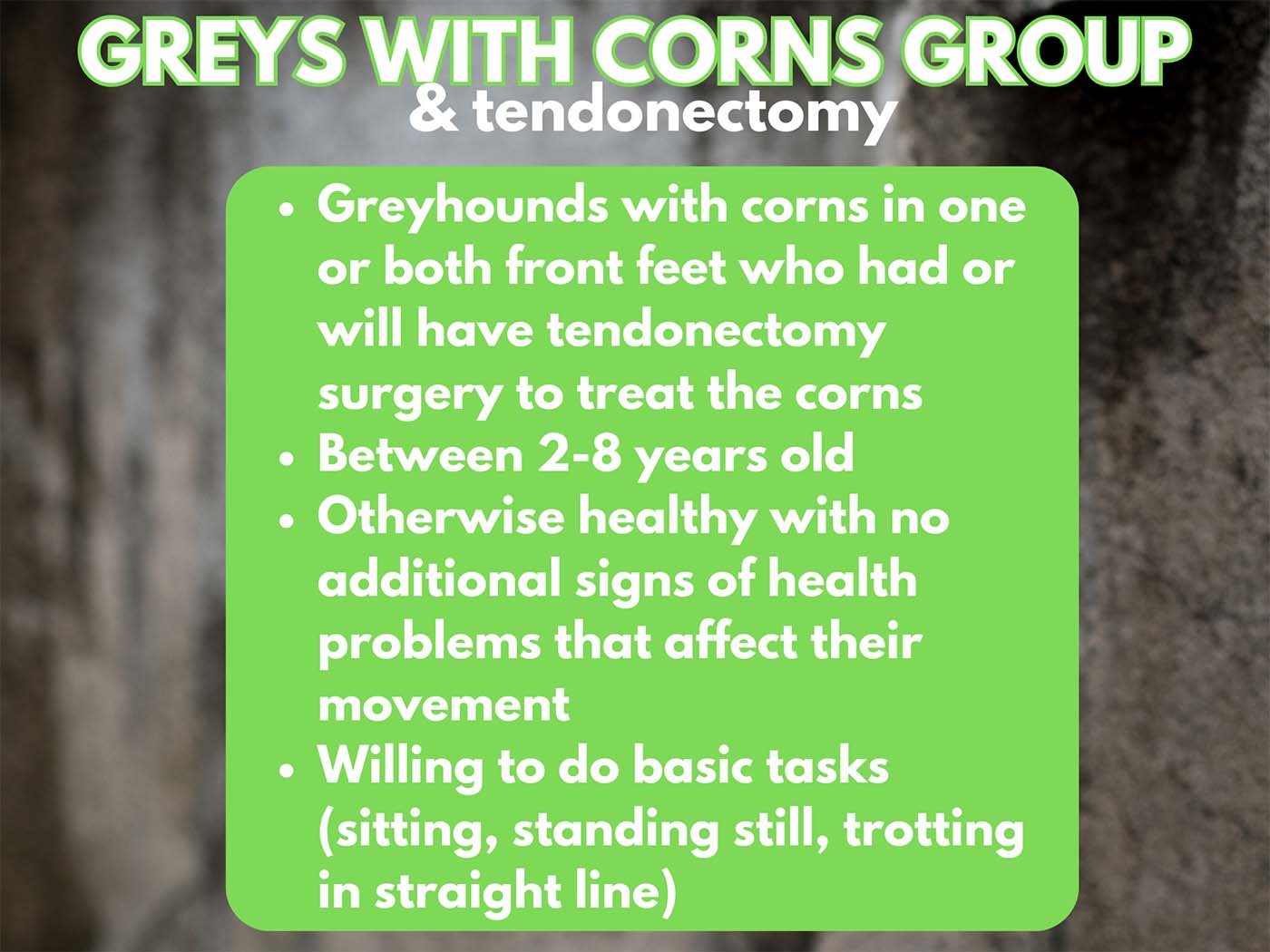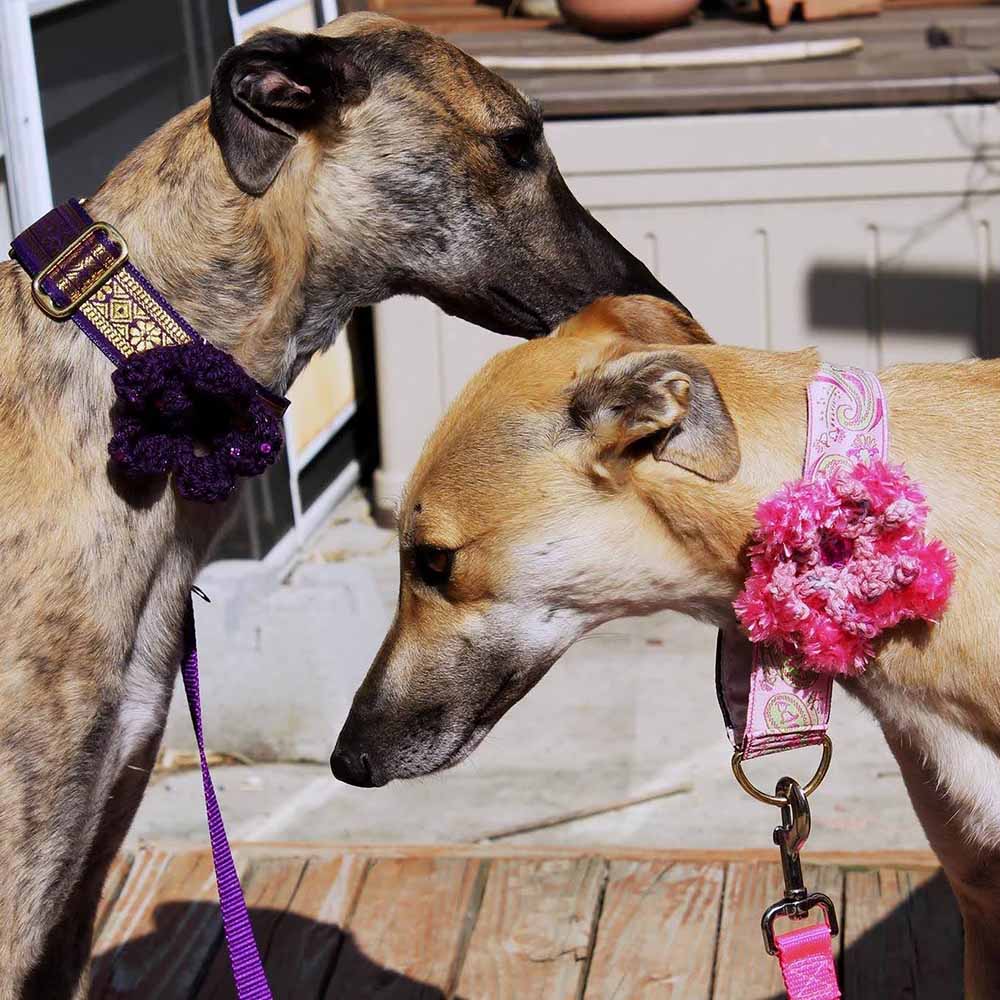The University of Liverpool to begin research in fall of 2023
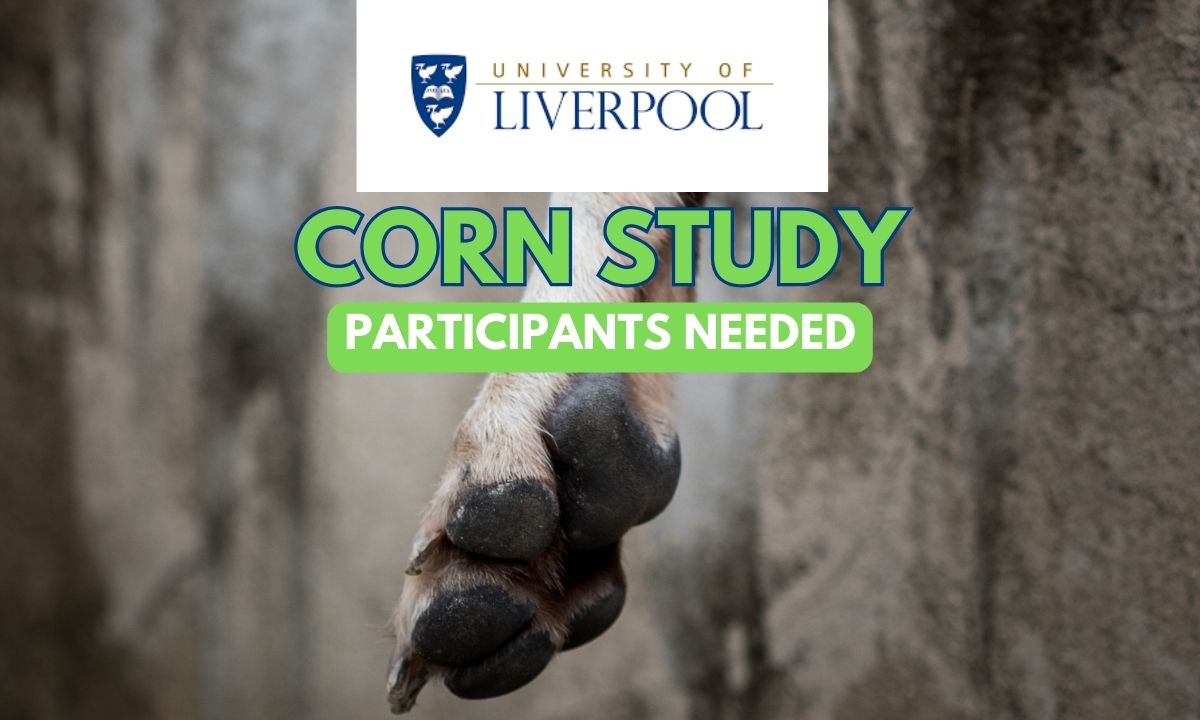
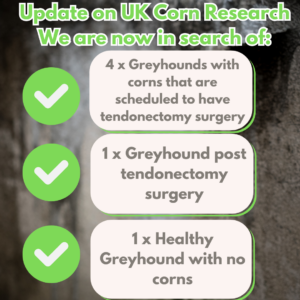
Updated January 2024
PARTICIPANTS NEEDED!!!!
The Greyhound Health Initiative (GHI), researchers from the University of Liverpool, and Dr. Mike Guilliard conducted a Corn Symposium in 2022 to share the latest treatment techniques for corns, as well as helping to fund further research that will have a major impact on canine corn treatment worldwide. The symposium is available on our website free of charge.
We are now looking for greyhound participants for this study that live near The University of Liverpool in the United Kingdom. Participants will be provided a £10 Amazon voucher per visit. More information on the study can be found by watching our 2022 Corn Symposium and/or reading about the study below. Donations for this study are graciously accepted using this LINK
If your greyhound qualifies for one of these groups and you would like to participate in the study, please contact Dr. Karl Bates by emailing: mbexekb3@liverpool.ac.uk
Click the Youtube video below to view our 2022 Corn Symposium
An integrated experimental-computational study assessing long term biomechanical effects of superficial flexor tendonectomy for corn treatment in greyhounds
Project Summary
Corns are a common cause of severe lameness in pet greyhounds. Recently, surgical management of corns by superficial flexor tendonectomy is reported to give the best results in terms of improvement of lameness. However, to-date there has been no quantitative examination of this surgical treatment of corns on the biomechanics of the foot or limb(s) more widely. The overall aim of this project is to investigate the biomechanical consequences of tendonectomy on (1) the affected foot and (2) the overall gait of greyhounds that present with corns. We will use standard gait analysis tools and cutting-edge x-ray videography to quantify foot and limb motions in healthy greyhounds and longitudinally in a population of animals undergoing surgical treatment. Using this unique data set we will statistically compare longitudinal changes within the tendonectomy group and compare these to normal greyhound walking mechanics to elucidate the biomechanical consequences of tendonectomy on the affected foot. Finally, we will use biomechanical computer modeling to quantify the impact of tendonectomy on muscle function and joint loading to provide a wholistic assessment on the impact of the procedure on overall limb mechanics.
Investigators
Investigator 1: Professor Eithne Comerford (EC)
EC is a veterinary orthopaedic surgeon and maintains an active clinical speciality in small animal orthopaedics with a particular interest in canine cranial cruciate ligament disease and rupture and with basic science research interests into companion animal musculoskeletal injuries. She is one of the few clinically trained veterinary scientists having extensive experience in the understudied area of knee joint structure and function directly translatable to both veterinary and medical fields. EC is an international key-opinion leader for her work on the aetiopathogenesis of canine cranial cruciate ligament rupture as evidenced by her invitation to give keynote talks at international conferences such as the American and European Colleges of Veterinary Surgery and British Orthopaedic Research Society. She was awarded the highly prestigious BSAVA Simon Award in 2017 for her contributions to canine ligament biology.
Investigator 2: Dr Karl Bates (KB)
KB is a Senior Lecturer in the Institute of Life Course and Medical Sciences at the University of Liverpool. His research goals are to integrate experimental and computational methods to elucidate links between morphology and biomechanics in animals. He has several ongoing projects working at the interface between experimental and computational biomechanics, including research into changes in human knee tissue mechanical properties and joint kinetics during ageing; investigating links between anatomy, gait and energetics in selectively bred birds; and use of gait analysis as a tool for musculoskeletal health assessment during ageing in companion animals.
Investigator 3: Dr Michael Guilliard (MG)
MG has been in private general veterinary practice throughout his career developing an interest in greyhound injuries leading to a number of publications and invitations to lecture around the world. His 2010 paper on corns in sighthounds highlighted the mechanical aetiology and the lack of success of conventional treatments. He pioneered the digital flexor tenotomy and tendonectomy procedures having now performed these surgeries on over 400 corn cases. He has been awarded the highly prestigious BSAVA Simon Award for his contributions to small animal surgery. In 2012 he was made a Fellow of the Royal College of Veterinary Surgeons for his thesis on distal limb injuries in the racing greyhound.
Advert_20230523_Tendonectomy.docx
